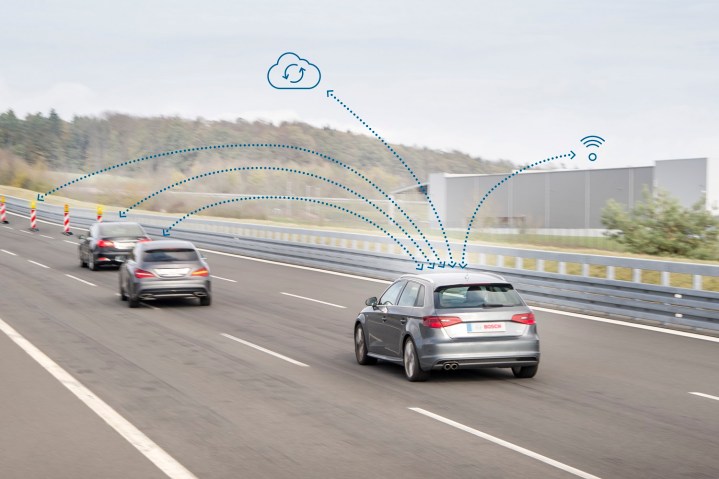
Communication technology is a piece of the connected and autonomous car puzzle that’s often overlooked. Cars need to be able to talk to each other and to the infrastructure in order to drive themselves without crashing, and sharing information lets motorists make the most of electronic driving aids. German components firm Bosch has teamed up with Veniam to ensure cars — regardless of whether they’re software- or human-driven — can talk in a clear, common language.
Getting cars to talk to each other and to the surrounding infrastructure is easier said than done. In some parts of the world, they would rely on cellular technology to communicate — and 5G will become increasingly important in the coming years. In others, they’ll use the Wi-Fi connections becoming increasingly available in big cities. Occasionally, they could communicate via both channels. Varying standards can cause communication issues, forcing car companies down the costly route of developing market-specific technology. Bosch and Veniam’s solution aims to solve that problem.
“Bosch is taking a multi-standard approach when it comes to V2X. We have developed a universal connectivity unit capable of communicating using all of the transmission standards implemented in connected automobiles,” explained Bosch board member Dr. Dirk Hoheisel in a statement.
The connectivity unit also knows which updates are significant and which ones can wait, and it takes data costs into account. For example, when a car’s traction control detects an ice patch, it’s important for it to inform other drivers so that they can adapt their driving style accordingly. The unit will instruct the software to send out this information immediately, even if it needs to rely on a network with higher data transmission costs. But a routine update to the car’s infotainment system isn’t urgent; it can wait until a Wi-Fi connection is available.
It’s not all about cost. The unit also detects the type of connections available, examines how strong each one is, and decides which one to use. It’s similar to how your smartphone works. It connects to 4G when you’re running errands, automatically connects to Wi-Fi when you get home, and switches back to 4G when you head out. The ability to seamlessly switch between networks ensures information — whether it’s a notification about a crash or about a construction zone — doesn’t get lost in translation.
The technology isn’t in production yet, but a Bosch spokesperson told Digital Trends the company is in talks with global customers about implementing it.



